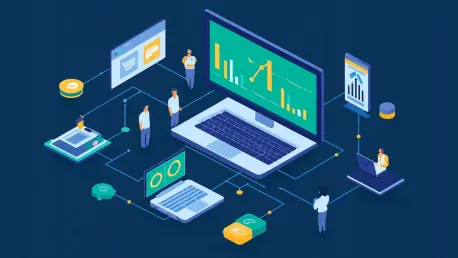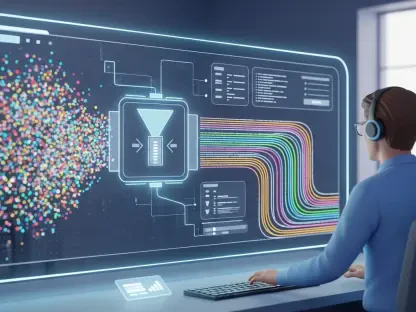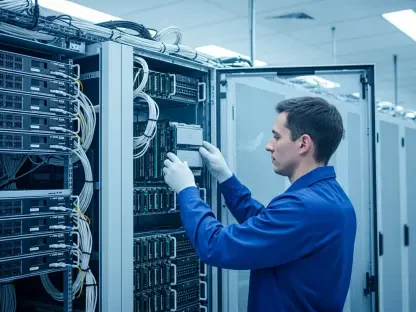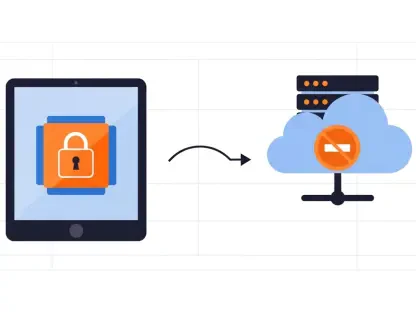The integration of Artificial Intelligence (AI) into DevOps practices is fundamentally transforming the landscape of software development and IT operations. This evolution is driving significant advancements in automation, security, and efficiency, making DevOps smarter and more resilient to emerging threats. AI’s role in these processes cannot be overstated as it contributes to creating a more streamlined, predictive, and secure IT environment.
The Role of AI in Modern DevOps
AI and Automation
AI is at the forefront of automating repetitive and complex processes within DevOps. The traditional DevOps model requires considerable human intervention for tasks such as continuous integration and delivery, provisioning infrastructure as code, and managing build dependencies. AI-driven tools, however, are revolutionizing these activities by significantly reducing human intervention and, consequently, minimizing errors that typically arise from manual processes. This automation leverages machine-learning algorithms that can analyze vast datasets, identify patterns, and, based on this analysis, predict potential issues before they cause disruptions.
Another aspect where AI significantly impacts DevOps is resource allocation. By utilizing machine learning, AI can optimize resource allocation, ensuring that IT infrastructure is managed as efficiently as possible. Predictive analytics plays a vital role in this context, enabling IT systems to proactively adjust resources based on anticipated demand. This reduces the likelihood of resource bottlenecks, thereby ensuring smoother operations and faster deployment cycles. Through AI-powered automation, DevOps teams can focus more on strategic initiatives rather than getting bogged down by routine tasks.
AI-Powered Monitoring and Analytics
AI-enhanced monitoring tools are transforming how IT teams handle system performance and reliability. Traditional monitoring tools often fall short in providing the depth and speed of insights needed to preemptively tackle issues. AI-driven solutions, on the other hand, offer real-time insights coupled with predictive analytics, helping organizations ensure the high availability and performance of their applications. These tools are capable of parsing through enormous streams of data to detect anomalies and provide predictive warning signs before issues escalate.
Moreover, integrating AI into monitoring systems aids in better decision-making. With the ability to leverage both historical data and real-time information, AI-driven analytics provide comprehensive insights that assist DevOps teams in making more informed decisions. These decisions can lead to improved operational efficiency and more reliable deployments. For instance, by understanding usage patterns and performance metrics, teams can achieve better load balancing and resource optimization, ensuring that systems run smoothly and efficiently even under high demand.
Strengthening Security with AI
AI for Threat Detection
The integration of AI into security operations is revolutionizing the approach to threat detection. Traditional methods of threat detection often struggle to keep pace with the rapidly evolving landscape of cyber threats. AI algorithms, with their capacity to analyze vast amounts of data, can uncover anomalies that might indicate potential security breaches. This proactive and intelligent approach enables organizations to thwart attacks at an early stage, fortifying their defenses against a myriad of digital threats.
AI’s role in security extends to identifying patterns consistent with malicious activities. These sophisticated AI models continuously learn from new data, adapting to evolving threat patterns. This adaptability is critical in maintaining high-security standards and ensuring robust protection mechanisms against emerging cyber threats. By doing so, AI provides a dynamic defense mechanism that evolves with the threat landscape, enhancing the organization’s ability to defend itself preemptively rather than reactively.
Enhancing Policy Enforcement
AI enhances the enforcement of security policies through intelligent automation. Ensuring compliance with security standards and regulations is paramount for any organization, and AI-driven systems reduce the risk of human error in this regard. These intelligent systems not only enforce set policies but also ensure that security practices are consistently applied across all operations, thereby establishing a strong security posture throughout the organization.
Additionally, AI systems can autonomously adapt to new security policies or regulatory requirements. This adaptability is crucial in the face of constantly changing compliance standards. With AI, organizations can ensure that they remain compliant with the latest regulations without significant manual effort. This not only saves time and resources but also ensures that the organization’s operations remain up-to-date with current security standards, thus minimizing the risk of non-compliance penalties and enhancing overall security.
Future Trends and Innovations
AI in DevSecOps
The rise of DevSecOps—the integration of security practices within the DevOps cycle—is being heavily influenced by AI technologies. AI’s ability to integrate security checks seamlessly within the development pipeline ensures that security is no longer an afterthought but an intrinsic part of the development process. For instance, AI can automate code reviews, vulnerability assessments, and even penetration testing, creating a continuous and proactive security posture throughout the development cycle.
By embedding security checks and balances directly into the DevOps processes, AI helps in identifying and mitigating vulnerabilities early in the development phase. This proactive integration reduces the risk of security issues making it into production, thus enhancing the overall resilience of the software. Furthermore, AI-driven security measures can adapt to new threats, ensuring that security mechanisms remain robust and effective as the threat landscape evolves.
Predictive Maintenance and Self-Healing Systems
The integration of Artificial Intelligence (AI) into DevOps practices is profoundly revolutionizing the realm of software development and IT operations. This progression is propelling notable advancements in automation, security, and efficiency, making DevOps more intelligent and robust against new threats. The importance of AI in these processes is immense, as it aids in fostering a more streamlined, predictive, and secure IT environment. Through the utilization of machine learning algorithms and intelligent automation, AI enhances the ability to anticipate potential issues before they occur, optimize resource management, and improve overall system performance. Furthermore, AI-driven analytics provide deeper insights into system metrics, enabling proactive decision-making and minimizing downtime. The overall impact on workflow and operational resilience is substantial, highlighting AI’s indispensable role in evolving DevOps practices. In essence, AI’s inclusion is not just an enhancement but a fundamental shift ensuring DevOps remains adaptive and robust in a rapidly changing technological landscape.









